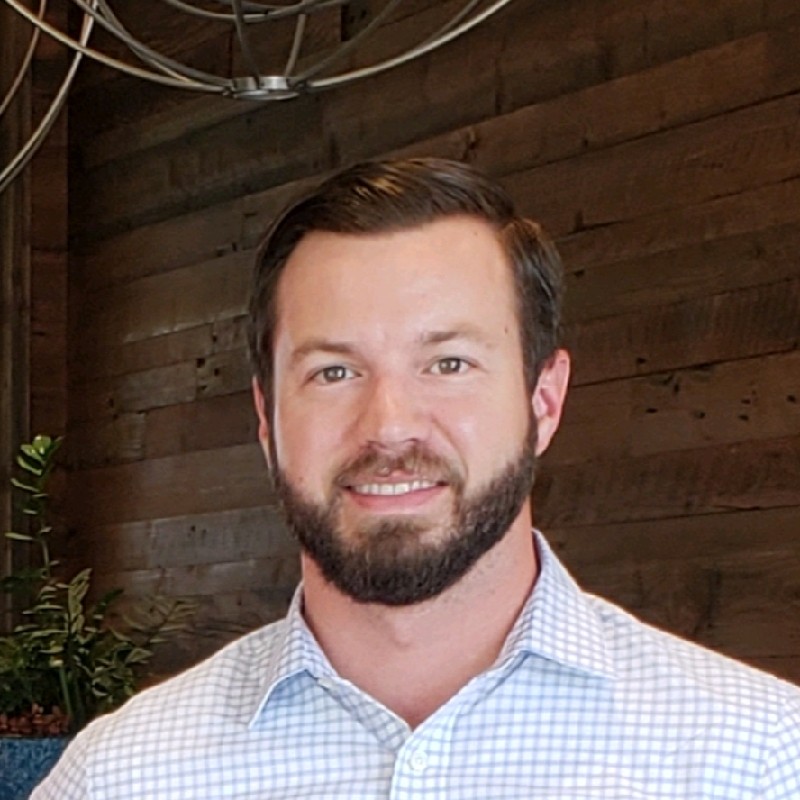Plastic-Free July is a campaign initiated by One Step Closer (OSC) to highlight the steps their Packaging and Climate Collaborative is taking this month to raise awareness about climate change. Some of their initiatives include a trash collection challenge in collaboration with Alter Eco to be #1StepClosertoZeroWaste. In addition, they’ve been sharing helpful tips all month long to encourage brands to amplify this message by sharing relevant content to their channels and pushing for policy signatures.

To help spread awareness about climate change, we caught up with Jake Hebert, Director of OSC’s Packaging Collaborative — a group of natural product brands and material manufacturers that aims to replace their conventional packaging with compostable bioplastics.
Hebert joined OSC in March 2022 but has been collaborating with the organization for years as a materials partner working for the manufacturer of NatureFlex compostable films.
In our conversation, Herbert shares how the food and CPG community is becoming more aware of the connection between climate change and its impact on marginalized communities. He also discusses how packaging innovation can have a large impact on offsetting carbon emissions. Read on to learn more.
On climate change challenges
Jake Hebert: One of the greatest challenges when it comes to dealing with the changing climate is the ability to respond to, or avoid, the impact of dramatic weather events. People in underserved communities are disproportionately affected in that they are more likely to lack the resources required to shield themselves and their families from things like large storms, droughts, etc. This could include the ability to temporarily relocate ahead of a tropical storm, make a permanent move to a cooler climate or an area less prone to flooding, afford the energy needed to cool your home in a warming environment, avoid outdoor jobs in areas with poor air quality, and work in fields in which wages are unaffected by weather events — all of which are facilitated with wealth.
On packaging innovation
JH: One area of packaging innovation that can have a large impact on carbon emissions and climate change is regenerative packaging. By replacing the linear status quo of take-make-waste with a bio-based circular model of harvest-utilize-return, we can increase the health and carbon-sequestering power of soil through composting and reduce our dependence on fossil-based carbon for polymer production.
Fossil-derived plastic replacements can be manufactured from fast-growing plant species like eucalyptus, bamboo, and kelp, and the expansion of agriculture for this purpose would result in more plant life to reduce carbon in the atmosphere through photosynthesis.
The key is to take a holistic view of your packaging life cycle and make sustainability-focused changes as they are possible from the standpoints of cost, performance, and availability. Even small packaging changes like reducing the thickness of a film means less energy for extraction (source reduction) and shipping, and less material in need of an end-of-life solution, all of which result in lower total GHG emissions related to packaging. OSC and our partners continue to test new solutions in compostable regenerative packaging, and strive to make our collective voice heard in the legislative space through our policy and advocacy work around packaging materials, composting infrastructure, labeling guidelines, and EPR laws.
What’s exciting about being in this role is that almost all the innovation in packaging is happening in the sustainability space, so we are always learning and testing new materials. The companies that we work with have a true passion for changing the future of packaging, and I’m inspired every day by our members and partners.
How to get involved
JH: The first thing would be to check out the OSC Innovation Portal to learn more about packaging materials and policy matters that may be relevant to your company. You can also visit our website to learn about membership benefits, or schedule a call with me to discuss how you can get involved.
Learn more about OSC here.






